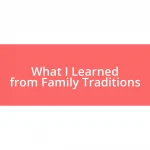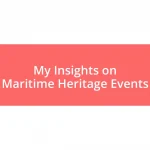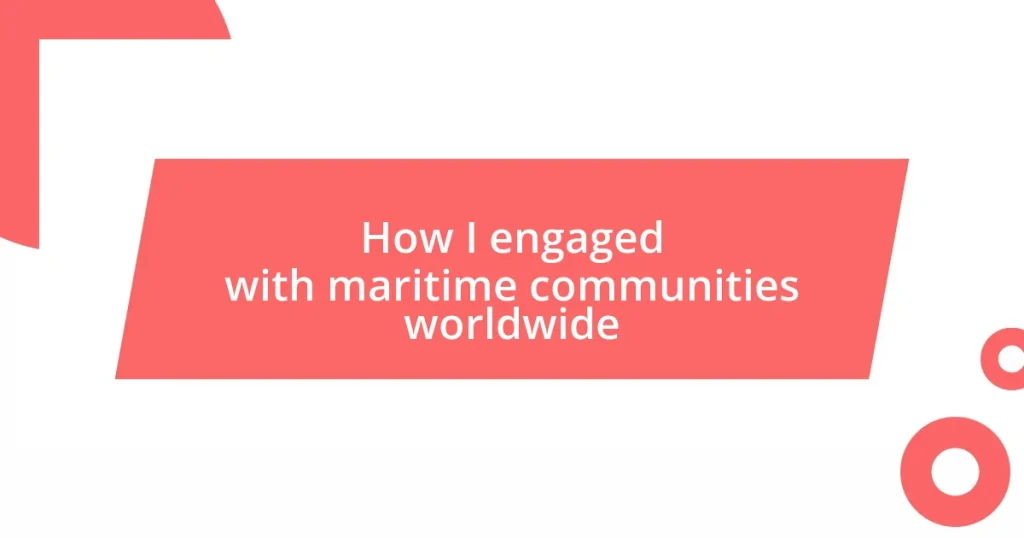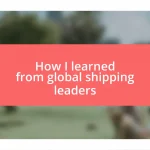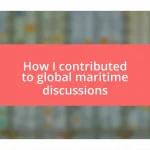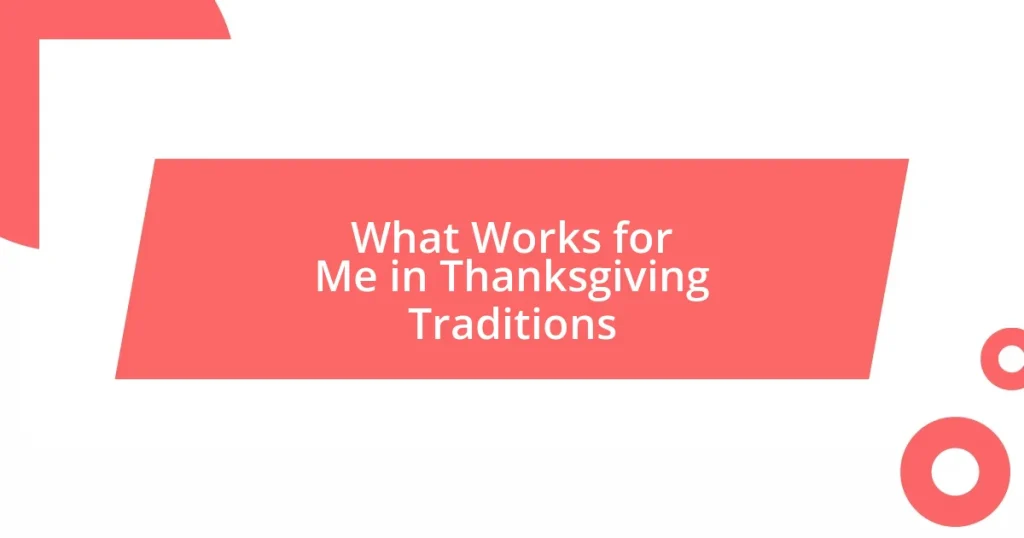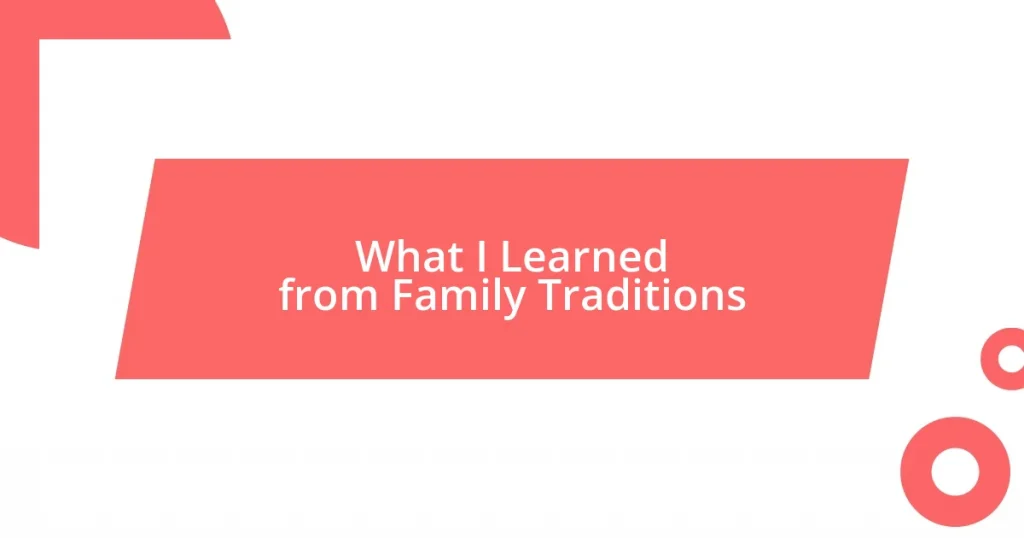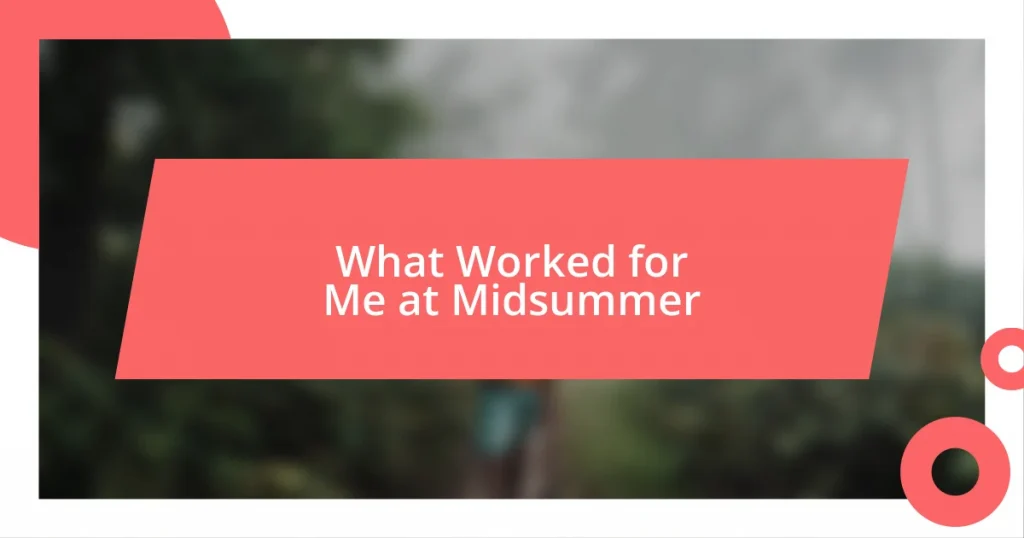Key takeaways:
- Building trust and relationships with maritime communities is essential for effective engagement, emphasizing the importance of listening and understanding local dynamics.
- Leveraging technology, such as virtual workshops and social media, enhances outreach and collaboration among fishermen, fostering supportive online communities and providing real-time resource management data.
- Participating in cross-cultural events and collaborative sustainable projects strengthens bonds within communities, highlighting shared goals of environmental stewardship and cultural appreciation.
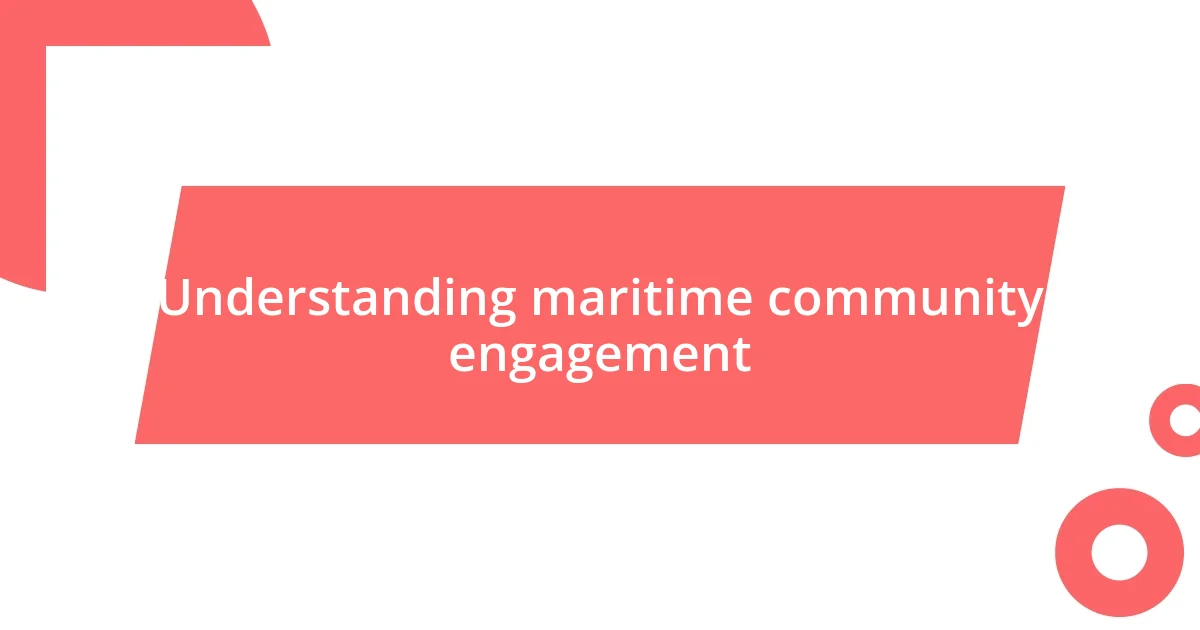
Understanding maritime community engagement
Understanding maritime community engagement goes beyond just connecting with people; it’s about building trust and relationships. I vividly recall my first visit to a coastal village where fishermen gathered to share stories of their daily struggles. It struck me how their passion and pride in their craft intertwined with their deep-seated fears about environmental changes.
Have you ever wondered what drives communities to rally for maritime issues? I remember attending a local meeting where residents passionately discussed the impact of tourism on their fishing grounds. The way their faces lit up with hope as they shared ideas for sustainable practices highlighted the power of collaboration and collective action. It taught me that engagement is not just about listening; it’s about empowering communities to take charge of their own narratives.
Each interaction I’ve had with maritime communities has reinforced the idea that genuine engagement requires empathy and openness. Once, while volunteering with a coastal conservation group, I was struck by how local knowledge often surpasses academic expertise. This realization helped me appreciate the unique perspectives these community members bring, reminding me that true progress often comes from grassroots efforts rooted in shared experience.
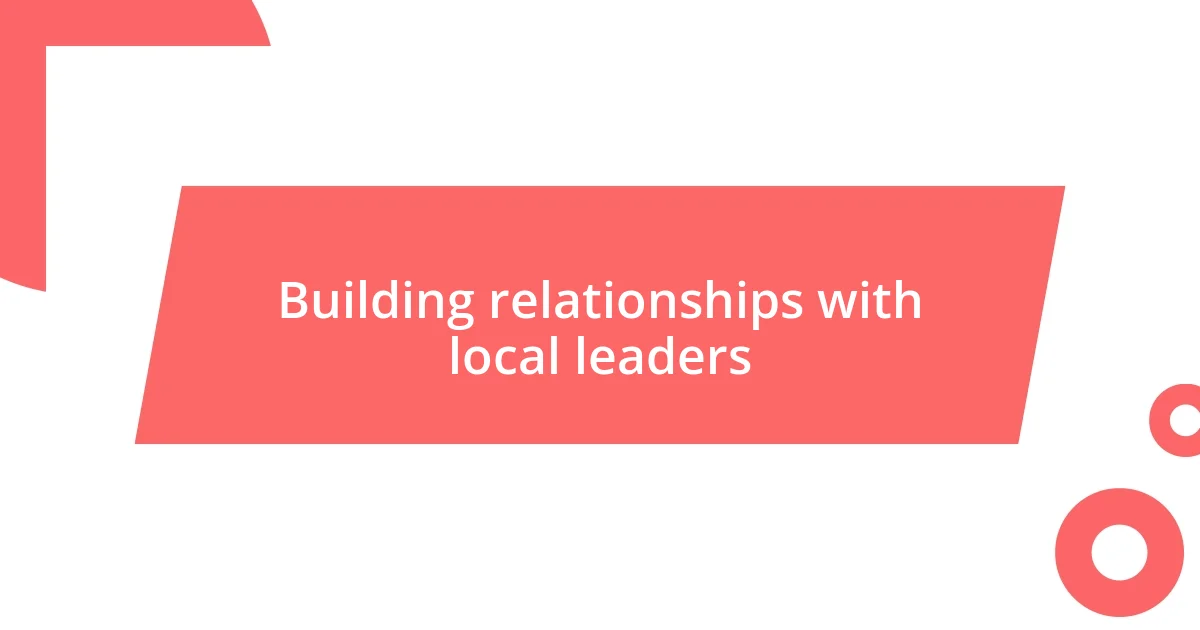
Building relationships with local leaders
Building relationships with local leaders is crucial to effective maritime community engagement. During my travels, I found that establishing trust with local leaders laid the groundwork for meaningful collaboration. I recall a particularly eye-opening conversation I had with a village chief who shared not only the community’s challenges but also their aspirations for sustainable fishing practices. His willingness to open up made me realize how vital it is to listen and understand the unique dynamics at play in each community.
To nurture these relationships, I’ve learned to prioritize specific actions, such as:
- Attending local gatherings to show support and understanding of communal issues.
- Actively seeking advice from leaders on ways I can contribute to their vision.
- Recognizing and respecting their cultural traditions, which fosters trust and reciprocity.
- Following through on any commitments made, proving reliability.
- Celebrating local achievements together, reinforcing a sense of collective success.
By focusing on these actions, I’ve seen how building authentic relationships with local leaders enhances collaboration and drives meaningful change.
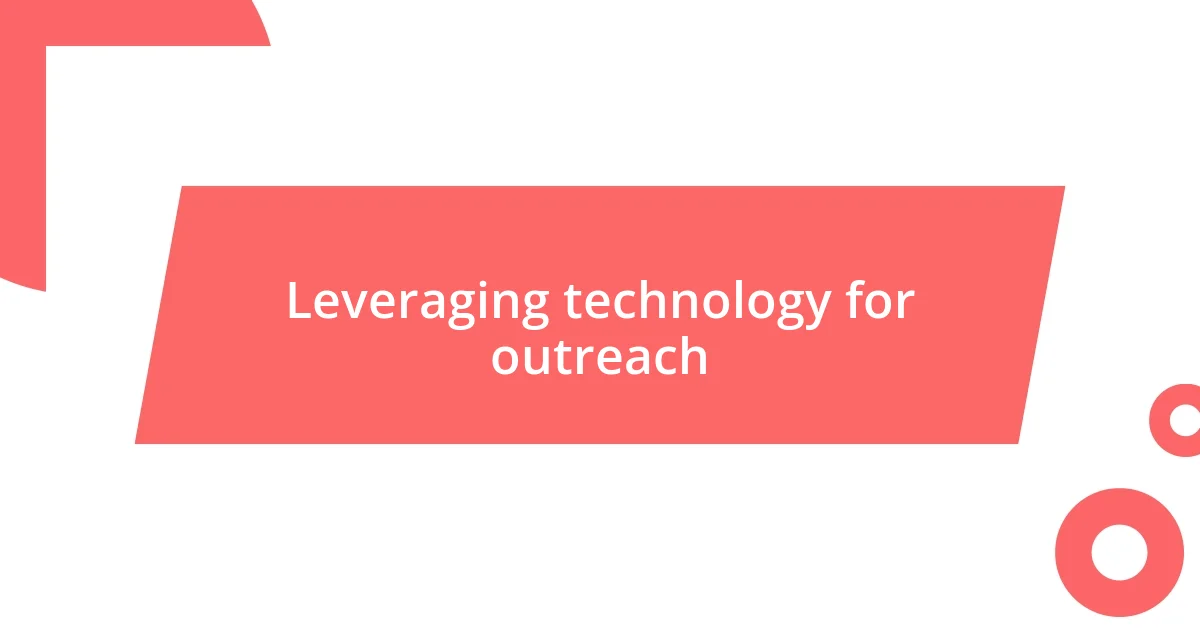
Leveraging technology for outreach
I’ve found that leveraging technology for outreach can truly enhance engagement with maritime communities. For instance, I once organized a virtual workshop that allowed fishermen from different regions to share their experiences and strategies. It was incredible to see how technology broke down geographical barriers, making it possible for them to connect and learn from one another, fostering a sense of camaraderie that transcended their immediate surroundings.
Moreover, utilizing social media has transformed how I interact with these communities. On one occasion, I set up a Facebook group specifically for local fishermen where they could post questions and share insights about sustainable practices. The engagement was heartwarming—I saw members offering support, advice, and even sharing their own stories, building a vibrant online community. This illustrated just how powerful digital tools can be when it comes to amplifying voices that often go unheard.
In addition to social media, I also experimented with mobile applications tailored for maritime stakeholders. I remember introducing an app that provided real-time information about fish migrations and environmental conditions. It was rewarding to witness the immediate impact it had; the fishermen expressed how this tool not only improved their catches but also fostered informed discussions about resource management among them. This experience reaffirmed my belief that technology, when used thoughtfully, can drive positive change in maritime communities.
| Technology | Impact on Outreach |
|---|---|
| Virtual Workshops | Facilitates sharing of experiences across regions |
| Social Media Platforms | Creates vibrant online communities for support and advice |
| Mobile Applications | Provides real-time data for better resource management |
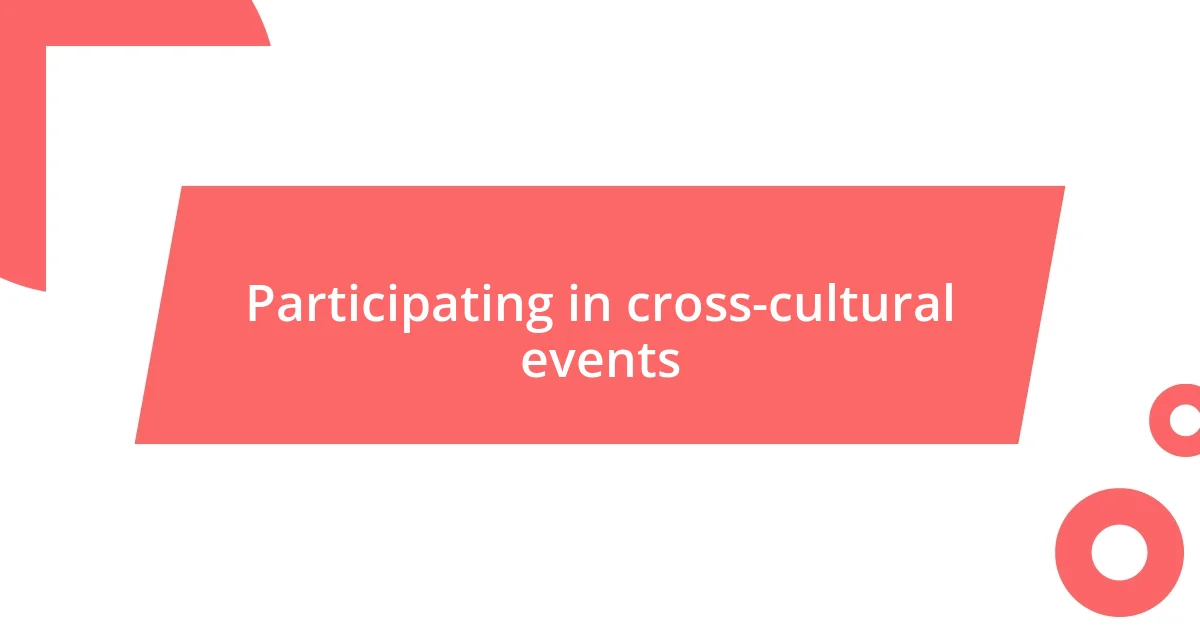
Participating in cross-cultural events
Participating in cross-cultural events has always been a favorite experience of mine. I remember attending a maritime festival in a coastal town that celebrated its rich fishing heritage. The energy in the air was palpable as people from diverse backgrounds shared stories and traditions. For me, it was a moment of connection—getting lost in a sea of laughter, local food, and the enchanting sounds of traditional music. It made me wonder: how many cultures could I explore if I just stepped out more often?
At one particular event, I engaged with members of a fishery cooperative from a different culture. They demonstrated their unique fishing techniques, which amazed me. I could feel their pride in sharing their heritage and knowledge, which sparked a sense of camaraderie among us. It’s experiences like these that really hit home; it’s one thing to read about cultural practices, but another entirely to witness them firsthand. How often do we take the time to truly immerse ourselves in each other’s stories?
In my journey, I’ve come to appreciate the richness of learning through shared experiences. During a workshop that brought together fishermen from various regions, we discussed sustainable practices and the challenges we faced. One participant spoke passionately about the delicate balance of their local ecosystems. Listening to him reminded me that while our methods may differ, our ultimate goal remains the same: preserving our livelihoods for future generations. Isn’t it beautiful how cross-cultural events can create a bridge that highlights both differences and similarities?
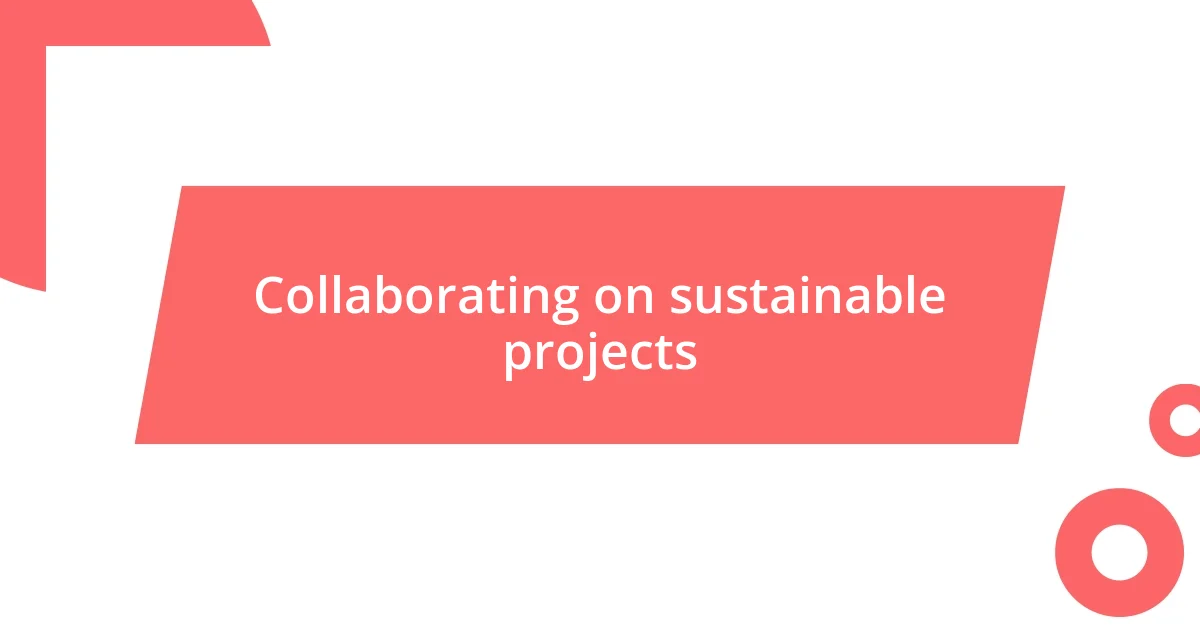
Collaborating on sustainable projects
Engaging in collaborative sustainable projects has been one of the most fulfilling aspects of my work with maritime communities. I recall a time when I partnered with a group of local fishermen to develop a community-managed marine protected area. The excitement was palpable as we all came together, brainstorming how to balance their livelihoods with the need to safeguard our precious marine ecosystems. It was empowering to witness their dedication to sustainability, and it sparked a renewed sense of purpose in me.
I’ll never forget the day we launched a clean-up initiative along the coast. As we collected plastic waste, laughter and stories flowed among the volunteers. It was incredible to see individuals from different backgrounds unite over a shared mission. In that moment, I realized that sustainability isn’t just about the environment; it’s about building bonds and fostering a sense of responsibility to one another and the planet. How often can you say that an effort to restore nature also restores our connection to each other?
During a project focused on sustainable fishing practices, I facilitated a workshop where participants shared their challenges and successes. One fisherman recounted how adopting alternative bait had not only reduced bycatch but also improved his catch quality. Listening to his journey made me reflect on how small, informed changes can lead to significant impacts. It’s moments like these that remind me of the power of collaboration—after all, when diverse minds come together, innovative solutions emerge that benefit both the community and our environment.

